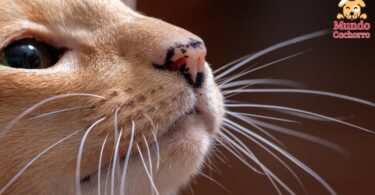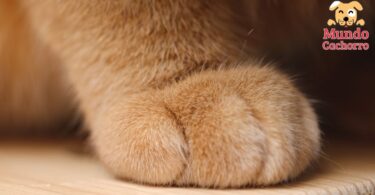Cat owners often find themselves in a peculiar situation: the cat seems relentless in its demand for food, even with a full plate. This seemingly contradictory behavior can be disconcerting. However, it has roots in nature and feline psychology that are worth exploring.
Indice
First of all, it is important to understand that cats are hunters by nature. Although they have been domesticated for thousands of years, they still retain many of their predatory instincts. In the wild, feral cats never know when their next meal will be, so they have a natural tendency to eat when food is available, even if they are full at the time.
Ordering with a full plate
In addition, cats are animals of habit. If a cat is accustomed to receiving food whenever it asks for it, it is likely to continue to ask for food, even if its dish is full. This is because they have learned that meowing or seeking human attention often results in a reward in the form of food.
Another factor that can influence foraging behavior in cats is the quality and taste of the food provided. Some cats may prefer certain types of food or brands, and may exhibit foraging behaviors if they are not satisfied with what is offered, even if the dish is full.
Food cravings may also be a factor. Some cats experience separation anxiety or food-related anxiety, which can lead them to constantly seek food as a way to calm their nerves or distract themselves from other emotional problems.
In addition, environmental factors such as boredom or lack of stimulation may also contribute to foraging behavior in cats. Cats are intelligent and curious animals that need mental and physical stimulation to stay happy and healthy. If they do not have enough enrichment in their environment, they may turn to food as a way to relieve boredom or frustration.
Addressing behavior
So what can owners do to address this behavior? First, it is important to establish a regular feeding routine for your cat and stick to it. Providing controlled portions of food at consistent times can help set clear expectations for the cat and reduce the need for constant foraging.
In addition, providing environmental enrichment, such as interactive toys, cat trees and structured playtime, can help keep cats mentally and physically stimulated, thereby reducing their dependence on food as a form of entertainment.
In summary, foraging behavior in cats can be complex and multifaceted, with roots in predatory nature, individual experience, and environmental factors. Understanding the reasons behind this behavior and providing a nurturing environment and consistent feeding routine can help address this behavior and promote the cat’s health and well-being.
Image courtesy of https://pixabay.com. All rights reserved.







